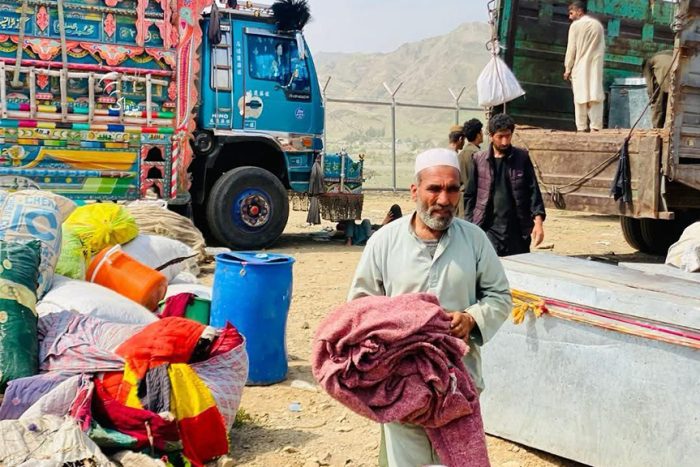Situation Update I Worsening Humanitarian Crisis: The Second Wave of Afghan Refugee Deportations Begin
Since mid-September 2023, the Government of Pakistan has launched an extensive repatriation campaign targeting undocumented Afghan nationals and holders of Afghan Citizen Cards (ACC). This initiative has been driven by concerns over internal security and the need to address migration management priorities. This ongoing deportation campaign, now in its second phase, has placed an estimated 800,000[1] individuals at risk of forced return.
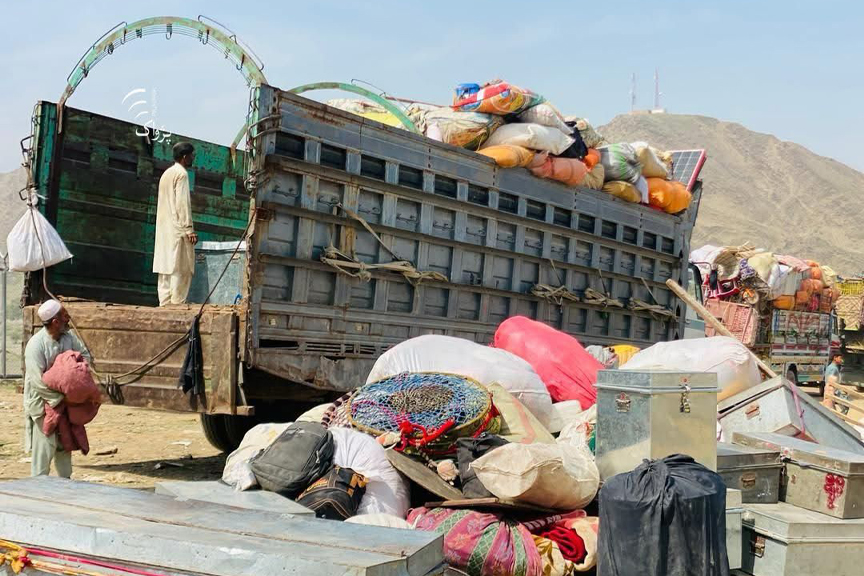
The Ministry of Interior of Pakistan had initially set March 31, 2025 as the deadline for ACC holders to voluntarily leave the country. However, this was later extended to April 10, 2025 in consideration of Eid ul Fitr holidays. Despite the extension, deportations resumed prior to the revised deadline.
According to reports from the Department of Refugees and Repatriation (DoRR) in Nangarhar and the WASH Cluster in the eastern region, between April 4 and 11, 2025, a total of 6,108 families (34,870 individuals) voluntarily returned to Afghanistan via the Torkham border. During the same period, 624 families (3,181 individuals) were forcibly returned, and 639 individuals were deported through the same border.
Forced returns involve entire families who sought asylum in Pakistan due to threats and fear for their safety in Afghanistan, yet were compelled to return immediately. Deportation, on the other hand, refers to instances where Afghan refugees—individuals alone—are apprehended in homes or public spaces within Pakistan, held in police custody to complete documentation, and subsequently transported to the Torkham border under police supervision. This differentiation highlights the varied circumstances under which Afghan nationals are being sent back amid ongoing deportation efforts.
The eastern provinces of Afghanistan—especially Nangarhar, Laghman, and Kunar—continue to face the greatest impact due to their proximity to the Torkham border and constrained absorption capacity. Despite the scale of deportations, assistance has been limited—with only a small percentage of the total receiving non-food items (NFIs) and transportation support from International Organization for Migration (IOM), cash assistance from UNHCR.
Humanitarian Needs & Challenges
According to the Humanitarian Response Plan (HRP) 2025[2], the large-scale return of Afghan nationals from Pakistan since mid-September 2023 has placed considerable strain on Afghanistan’s already fragile infrastructure and public services. The report highlights that the influx of returnees has further exacerbated existing vulnerabilities, including food insecurity, inadequate healthcare, and limited access to education—challenges that disproportionately affect women, children, and marginalised groups.
The HRP underscores the urgent need for coordinated, gender-responsive interventions to address these compounded challenges effectively. Vulnerable groups, including women, children, the elderly, and persons with disabilities (PWDs), face heightened protection risks, such as lack of documentation, exposure to violence, and limited access to essential services.
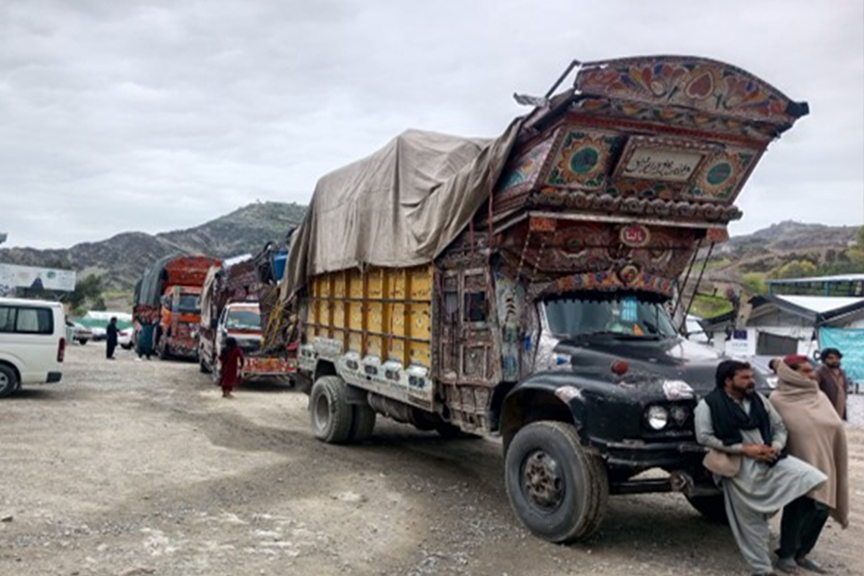
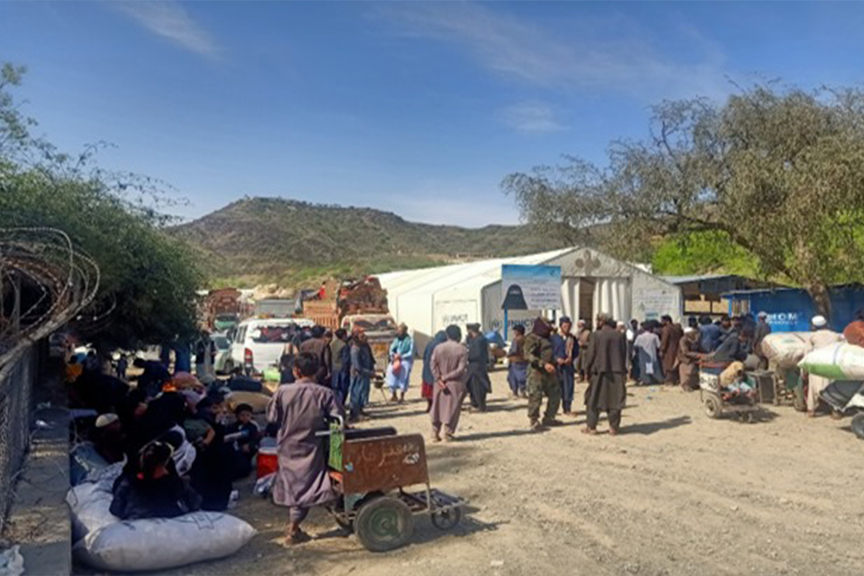
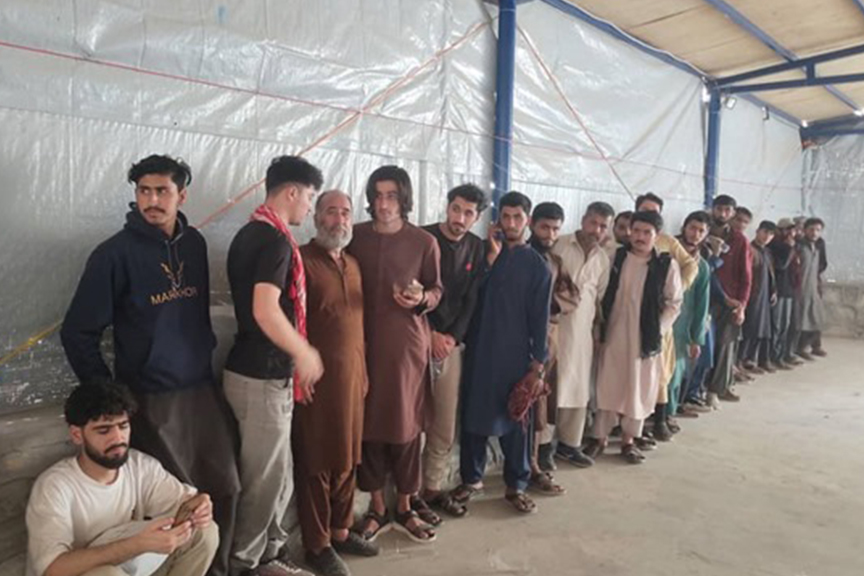
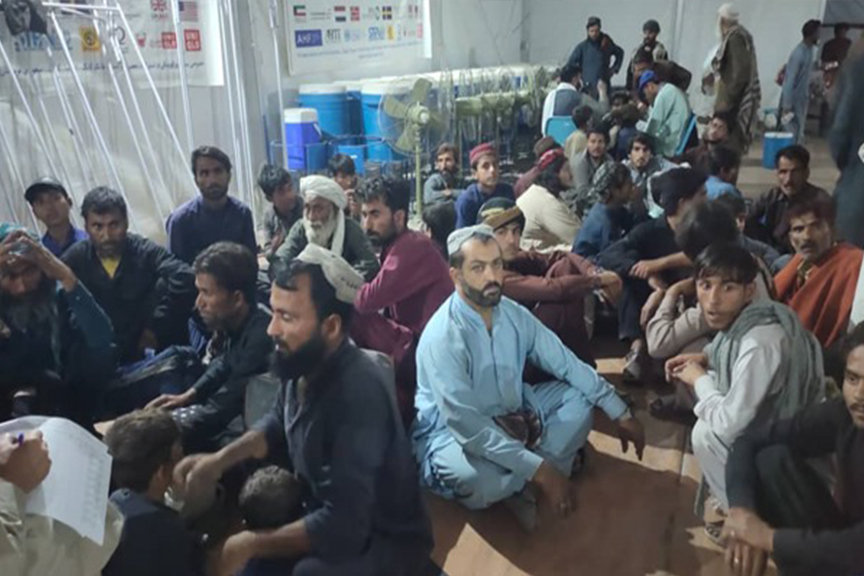
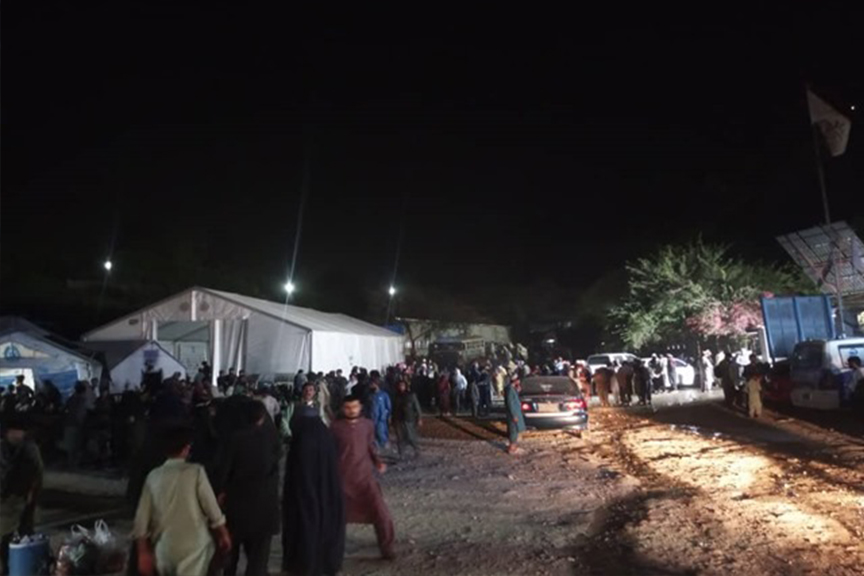
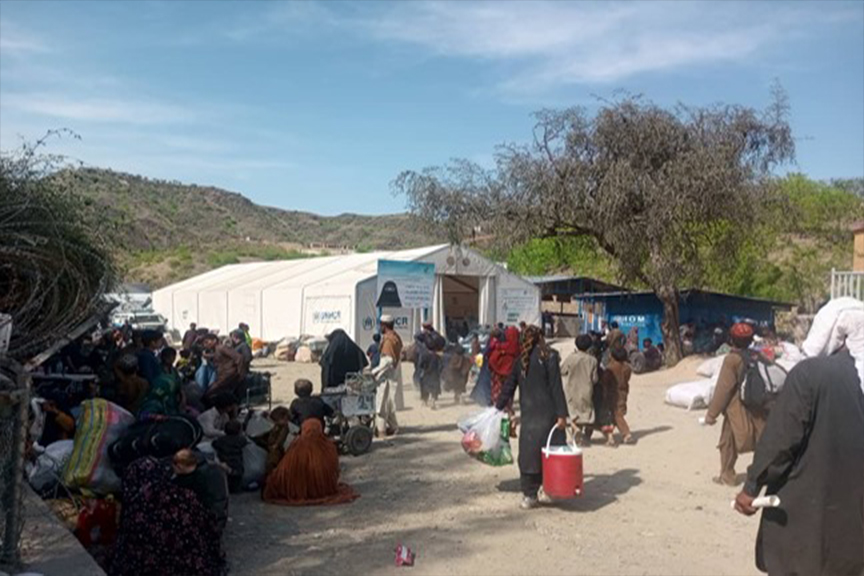
The rapid and large-scale returns have further aggravated existing challenges in Afghanistan, particularly in terms of limited access to shelter, healthcare, and employment opportunities. The situation is especially severe in provinces such as Nangarhar, Kabul, Laghman, Kunar, and Kandahar, where a significant number of returnees have resettled. Humanitarian agencies have raised concerns over heightened risks to the well-being of these communities, particularly those without access to adequate shelter and basic resources.
According to IOM[3], daily border crossings have resulted in overcrowded reception centres and a shortage of essential aid supplies. Due to significant funding shortfalls, the World Food Programme (WFP)[4] has also been forced to reduce its emergency food assistance operations.
Humanitarian response efforts are being coordinated by the Ministry of Refugees and Repatriation (MoRR), IOM, UNHCR, and OCHA,[5] in collaboration with several local and international non-governmental organisations. However, due to limited funding and the scale of returns, significant gaps persist in the provision of assistance—particularly at border crossing points and in the reintegration support offered within host communities.
Gender & Protection Impact:
As the second phase of the deportation of undocumented Afghan nationals and ACC holders commenced this year, gender-specific [6] and protection risks have become increasingly apparent. Women, girls, and children continue to make up the majority of returnees—UN and NGO assessments estimate that over 50% are women and girls, while nearly half are children under the age of 18. Many of these individuals arrive at the border without documentation, financial means, or male family members, significantly increasing their vulnerability to exploitation, abuse, and gender-based violence.
During this phase, protection actors have raised growing concerns regarding the lack of privacy and safety at border crossings, particularly at Torkham, where essential gender-sensitive services—such as the presence of women staff, separate sanitation facilities, and access to dignity kits—remain insufficient. Cases of unaccompanied and separated children have been reported, raising serious concerns about child protection risks, including family separation, trafficking, and child labour.
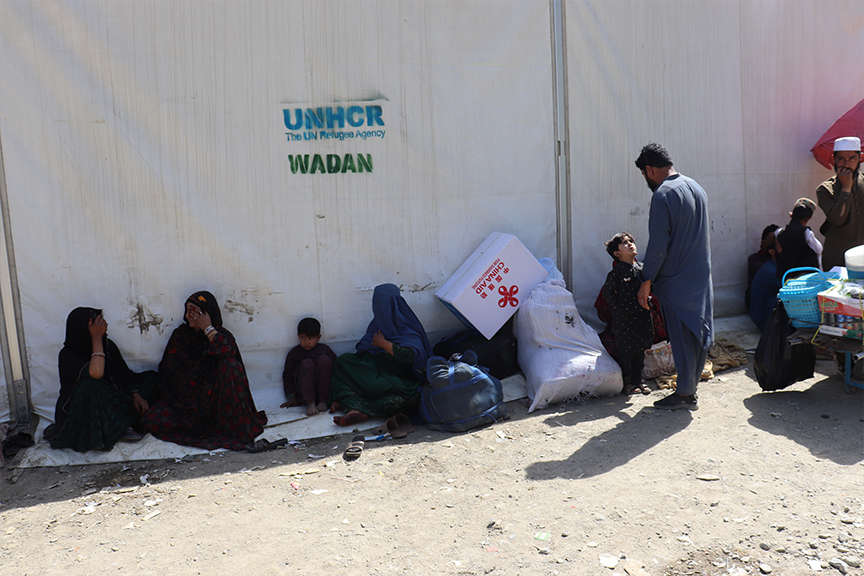
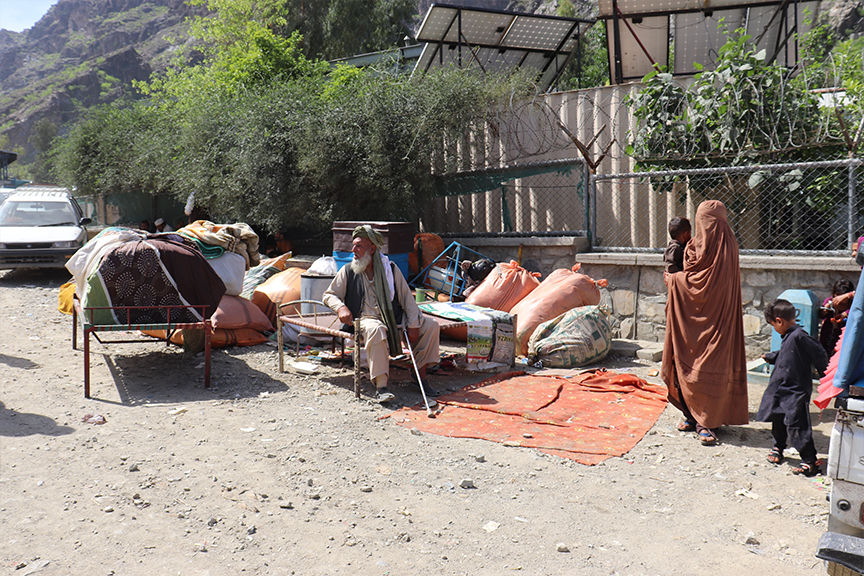
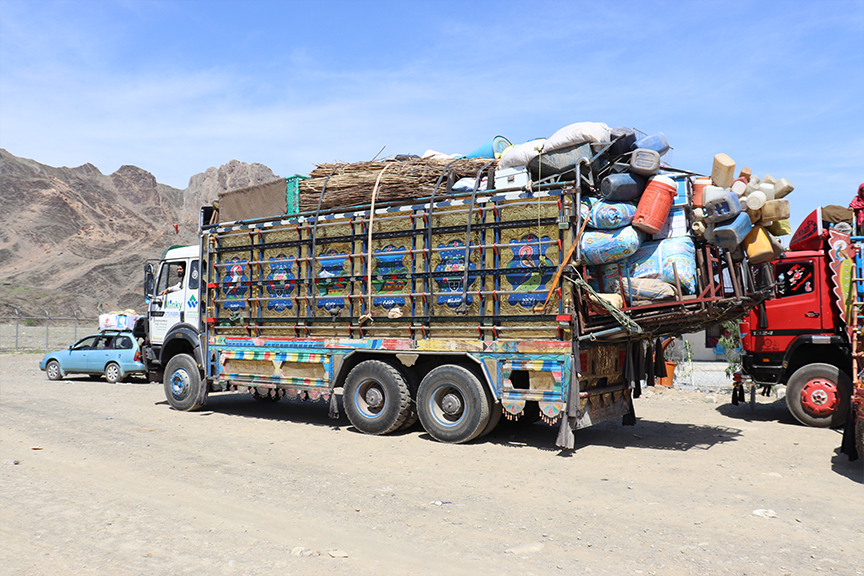
Elderly returnees and persons with disabilities face further difficulties in accessing transport, shelter, and healthcare services. The absence of dedicated protection desks or grievance mechanisms has also impeded vulnerable individuals from reporting cases of abuse or seeking legal support.
While humanitarian partners, including UNHCR, IOM, and local non-governmental organisations, are coordinating efforts to address these critical gaps, the scale of deportations during this second phase has surpassed the available resources, placing many returnees at heightened risk of being left without essential support.
An urgent scale-up of gender-responsive protection services is required to ensure the safety, dignity, and rights of affected populations are upheld.
Urgent Priority Needs:
- Emergency Cash Assistance (including multi-purpose cash assistance for food)
- Food Supplies
- Medical Support, particularly addressing medicine shortages in public health centres
- WASH, including latrines at camps, Hygiene kits and improved sanitation facilities
- Psychosocial support – many returnees, especially women and children, are in urgent need of mental health support and psychosocial services
- Tents and shelters for camps located at Zero Point on the Torkham border
Community World Service Asia (CWSA) Response
In response to the ongoing second phase of deportations, Community World Service Asia (CWSA) is collaborating with the Directorate of Refugees and Repatriation (DoRR), IOM, and UNHCR in Nangarhar to monitor returnee flows and evaluate urgent humanitarian needs. On April 7, CWSA and its partners conducted a joint monitoring visit to the Torkham border, examining the registration process for returnees, the conditions in temporary holding areas, and critical humanitarian gaps.
Through its current project funded by Diakonie Katastrophenhilfe (DKH), CWSA is actively mobilising resources to provide cash assistance for food to 1,000 returnee families in border camps and extends support to an additional 935 families in their home regions. Despite these efforts, the humanitarian needs remain overwhelming, with significant gaps in food assistance, multi-purpose cash aid (MPCA), and psychosocial support. Immediate action is essential to address the pressing needs and ensure the well-being of thousands of returnee families affected by this crisis.
Appeal for Support
Total Appeal: US$ $ [907.000]
- Multi-purpose Cash Assistance for [4,200] households – Budget US $[630.000]
- Psychosocial Support – Budget: $[25.000]
- Hygiene Awareness Sessions and Provision of Hygiene/Dignity kits for [2100] women – Budget [63,000]
Contacts
Shama Mall
Deputy Regional Director
Programs & Organisational Development
Email: shama.mall@communityworldservice.asia
Tele: 92-21-34390541-4
Palwashay Arbab
Head of Communication
Email: palwashay.arbab@communityworldservice.asia
Tele: 92-21-34390541-4
[1] Pakistan to start second phase of Afghan deportations | Refugees News | Al Jazeera
[2] Afghanistan Humanitarian Needs and Response Plan 2025 | Shelter Cluster
[3] Mass Forced Returns from Pakistan to Afghanistan Overwhelm Borders, Stretch Resources | International Organization for Migration
[4] WFP in Afghanistan forced to drop 10 million people from lifesaving assistance, deepening despair and worry for Afghans | World Food Programme
[5]https://www.unocha.org/publications/report/afghanistan/afghanistan-humanitarian-needs-and-response-plan-2025-december-2024
[6] UN experts call on Pakistan to stop displacing Afghans | OHCHR





